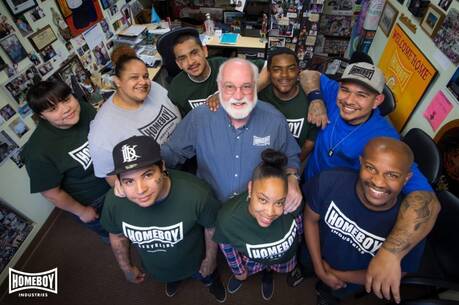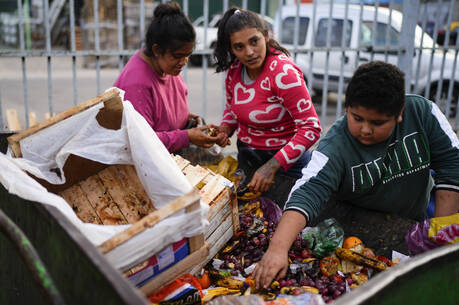The Hidden Homeless
The homeless people we encounter—or avoid—are usually on the streets, men and women sprawled on a park bench or huddled in a doorway behind a cardboard sign identifying themselves as veterans, pregnant or unemployed. But according to a recent report from the National Center on Family Homelessness, there has been startling growth in the number of children among the nation’s homeless population. Nearly 2.5 million children were homeless at some time during 2013. In 2006, 1 in 50 children were homeless; today the number is 1 in 30.
The term homeless covers those who lack a fixed nighttime residence. That includes people sleeping in a park, car, abandoned building or temporary shelter, as well as those who share a hotel room, face eviction or are fleeing violence against or within their family. Despite the economy’s recent resurgence, families on the cusp of poverty remain vulnerable. The gap between rich and poor continues to widen, and racial minorities have for the most part not benefited from the recovery. The typical homeless family is an unmarried mother and two children with no means of support. Children living in such unstable circumstances often miss school, fail courses and drop out. Up to 25 percent of pre-school and 40 percent of school-age children experiencing homelessness have mental health problems and are at risk of growing up without the cognitive and social skills needed for future employment and parenting.
The report concludes that we could end child homelessness within a decade if funds at the local, state and federal levels were reallocated, making children a top priority. But first, all of us would have to care.
Faithful Condemnation
Delegates at the Catholic-Muslim Forum, which met from Nov. 11 to 13 at the Vatican, condemned all use of violence to pursue ideological or religious ends. A joint statement from the meeting stressed that “it is never acceptable to use religion to justify such acts or to conflate such acts with religion” and held up ways to build mutual understanding and respect: educate people on the incompatibility of faith and violence; engage in interreligious dialogue; and, most important, discover how both faith traditions can together serve the wider community.
Founded in 2008, the forum meets every three years to assess relations between the two faiths and look for ways to improve cooperation. Pope Francis urged members to continue on the path of mutual understanding, especially during this time of heightened religious tension. Recognizing that there are many examples of fruitful Catholic-Muslim collaboration, the forum pointed out that it is of “utmost importance” to foster respect and that much work is required to “overcome prejudice, distortions, suspicions and inappropriate generalizations, all of which damage the peaceful relationships we all seek.”
America’s editors recently joined the pope in calling on Catholics to “elevate the conversation” around the Muslim faith and culture (“Encountering Islam,” 11/17). True engagement across religious divides is no easy task; a nuanced reciprocity is required. But, as the editorial stated, we live in a world “where senseless terror threatens Muslims and Christians alike.” Frank and open dialogues like the Vatican forum can be a positive step in firmly repudiating violence carried out in the name of religion as we seek to remove this scourge from our midst.
Catholics Behind the Curtain
Twenty-five years after Eastern Europe began to emerge slowly, and then almost all at once, from behind the veil of the Iron Curtain, how well is the church’s role in Cold War-era resistance remembered? The contributions of St. John Paul II were justly noted during the commemoration of the fall of the Berlin Wall on Nov. 9. His 26-year pontificate and elevation to sainthood ensure that we will not soon forget the role Karol Wojtyla played in supporting the Solidarity movement at crucial junctures in Poland’s history. But what about Bishop Vaclav Maly in Prague, who was jailed along with Vaclav Havel and later helped negotiate with the Communist leadership of Czechoslovakia? Or the Jesuits Josef Zverina and Frantisek Lizna, who contributed to that country’s Charter 77 human rights movement?
These names are not exactly lost to history, but they are not as well known as they should be. As Jonathan Luxmoore reports for Catholic News Service, priests and religious also played a role in dissident movements in East Germany, Romania and Lithuania. In a symposium to mark the anniversary of the fall of the Berlin Wall, Cardinal Reinhard Marx of Munich-Freising said, “We who have enjoyed the fruits of this harvest remain in their debt, and I regret the legacy of civil rights activists occupies such a small place in our memories today.”
The accomplishments of these individuals should be honored, not for nostalgic reasons, but as a reminder that religious movements can and often do help turn the pivots of history. As Cardinal Marx said, we need to “build a culture of memory oriented toward the future” in order that the church can continue to play a robust role in our pluralistic societies.








